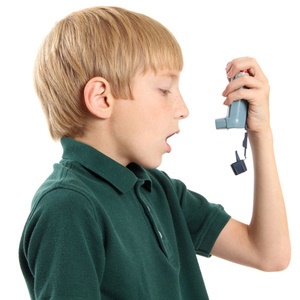
We send our children to school or sport practice with the notion that they would be looked after and taken care of in the case of an emergency.
But just how well equipped is your child's teacher or sports coach to deal with an asthma attack?
What do teachers know about asthma?
In 2012, a peer reviewed article about asthma and schools in South Africa was published in South African Family Practice.
This study took data from 226 school teachers in 19 randomly selected primary schools in Umdoni, KwaZulu-Natal. They asked these teachers 55 questions to test their knowledge about asthma and handling an asthma emergency.
The results indicated that only 38.5% of these teachers were able to answer more than 50% of the questions correctly.
The outcome of this study was that teachers lacked basic knowledge in asthma, and that not all South African schools have the necessary emergency measures in place.
According to the Allergy Foundation in South Africa, there has been an increase in allergies in South Africa, which means that asthma care needs to be addressed. There are also inadequate guidelines for asthma care in schools.
Asthma training
A month ago an article reported that all school coaches in Minnesota, USA, were to partake in an online training module to teach them about asthma symptoms and how to respond should a student suffer an asthma attack.
The module “Athletes and Asthma: The Coach’s Role” went live on the league’s coach’s portal on 1 July, 2017. The module includes animation, videos and interactions that teach coaches about real-life issues related to asthma and how to help their student athletes control their asthma.
But why exactly do schools make such a fuss about asthma?
In Managing Asthma: A Guide for Schools, a couple of reasons why an asthma plan should be in place in schools are discussed. Although this guide was written within the American context, it is also applicable to South African schools.
1. Asthma common among students
In South Africa, 23% of all people suffer from asthma and it is the third most common reason for the hospitalisation of children.
According to research, it is estimated that asthma affects 20% of all schoolchildren in South Africa. Yet, because of a lack of awareness, only 2% of children with asthma are correctly diagnosed and treated. If schools become more aware of the prevalence of asthma, many more children could be diagnosed.
2. Uncontrolled asthma can lead to compromised academic performance and increased absence
If children suffer from ill health, their academic performance and school attendance can suffer. According to studies, nearly half of students who have asthma miss at least one day of school per year because of asthma symptoms.
3. Schools can help to control asthma
According to the guide, having a plan for asthma emergencies can help a child with asthma, or even save a life in the case of an emergency.
Why asthma plans are needed in schools
It is important to immediately tend to an asthma attack to stop it from becoming serious or life-threatening. If a student has an attack during school hours or sport practice, knowledge and swift action can save a life.
According to the guide, a plan to handle asthma attacks and health emergencies as well as the training of staff will lessen the chance of an attack being deadly. Proper precautions, such as using suitable cleaning chemicals and keeping the environment free of allergens will also help achieve a lower absence rate for children with asthma.
Your asthmatic child and school
The South African research mentioned earlier in this article is localised and limited in size, and therefore not necessarily applicable to all schools. Yet, there is a valid overall conclusion, indicating a lack of understanding and management of asthma in the South African context.
Here are some things you can do to manage your child's asthma at school:
According to the Allergy Foundation of South Africa, a policy in schools needs to be put in place. They suggest the following:
- Establishing an "allergy action committee" at every school
- Ensuring that all children with a chronic health condition are identified and have access to medication
- Implementing an emergency treatment plan for all children suffering from asthma
- Availability of emergency medication at all times
- Staff training for the treatment of severe allergies
Here are some things you can do as a parent to manage your child's asthma at school.
- Make sure that your child has the correct medication and inhaler with them.
- Ask about the school's emergency plan and sick facilities in general. Get to know the school nurse.
- Identify possible triggers in and around the school that could aggravate symptoms (allergens such as cleaning products, certain trees and plants, dust).
Image credit: iStock




 Publications
Publications
 Partners
Partners











